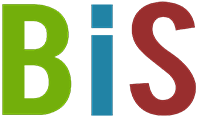Our Philosophy
A Philosophy of Learning
BIS follows a developmental approach to teaching and learning based in Integral Theory.
Simply put this means we look at the child’s own development and learning journey with a range of measures that helps us tailor learning to their needs. The particular unique aspect of this process is that all adults at BIS are involved in this developmental journey as we are also learning all the time. Our staff are willing to get to know themselves deeply so they can be aware when teaching, to not fall into habits or processes that are not the best for the children.
Lines of development
As we grow up and change in our perspective on the world, we see new ways to make our life work well and to help us work with our families and communities with success. We track our students on some of the most important of these lines as they allow us to know when they are ready for various parts of their curriculum learning.
| Cognitive | Their brain readiness for mastery of existing concepts and introduction to new Australian Curriculum challenges |
| Physical | The physical gross and fine motor skills needed for a range of learning and social skills |
| Moral Development | Developing empathy and compassion and an understanding of rules and laws |
| Ego Development | Understanding of the self in the world (e.g. time, space, self reflection) |
| Faith Development | Belief in how their world is controlled (ghosts and monsters or logical reasoning) |
| Emotional and Social Development | Self awareness and self management of emotions and working with others |
| Self Direction | Understanding of learning needs and ways of working (learning styles and organisational skills) |
Development can’t be forced, or ignored. If we try and work more than one level of development beyond where the child is at, it will sound like nonsense and they won’t understand. If we try to push them to the next level they will keep returning to the previous one whenever they are stressed.
We give them time and attention to find their own way.
Nobody can skip a stage; you need to be in it, explore it, and find out there are better ways to think and do you can see others do. When your stage stops working you move to the next one. Experiential learning is key to the process.
We look at the individual child’s readiness to identify where they need to be within the BIS cultural expectations for moral development and community participation, as well as where they need to be to fit societal expectations of the Australian Curriculum.
Philosophy of Decision Making
BIS believes in the power of collaboration and community in building a school.
Our school has its roots in Democratic Education, an educational philosophy that utilises the powerful interaction between choice, ownership and deep learning. The more freedom to own decisions in their learning that children have, the more likely they are to take responsibility for that learning.
This means students are very active participants in the structuring of their learning. This same theory applies across the school structure, as a solid functioning community of learners, thinkers and enactors must have a strong connection forged through the balance of freedom and responsibility.
BIS is an active and robust community where we need to hear as many voices as possible, consequently we have a number of ways that we get everyone involved:
- Students run our weekly whole school meetings, discussing the curriculum options for the term, excursions, events and their own plans and visions for the term
- Association members contribute and make strategic decisions about the long term vision for our school in their role on the school board
- Parents vote, give feedback and attend Whole School Meetings once per term to discuss big topics and engage in visioning
- Our online community engages in discussion and debate on a range of issues that informs the actions of both the Board and the Principal and Staff Council
To support this process our Cultural component of the curriculum explicitly teaches students how to run meetings, speak publicly, present ideas clearly and logically, get involved and participate in the world around them and take on social responsibility. We love seeing leadership emerge in our students. Similarly our staff are trained to support this process and our parents also supported in taking on this new role as a members of our volunteering teams.
Further Reading:
Kohlberg’s Theory of Moral Development
Kohlberg's theory of moral development is a theory that focuses on how children develop morality and moral reasoning. Kohlberg's theory suggests that moral development occurs in a series of six stages. The theory also suggests that moral logic is primarily focused on seeking and maintaining justice.
Integral Teacher, Integral Students, Integral Classroom: Applying Integral Theory to Education
Where, indeed, can one to learn how to think and perceive differently? Certainly, education in some of its contemporary "alternative" expressions offers students ways to "stray afield" of their own embedded-ness in particular modes of being and knowing. These alternative approaches provide important ways to transcend the prison of a life not reflected upon. Yet education in its conventional manifestations also cultivates important capacities for thinking and perceiving anew.



